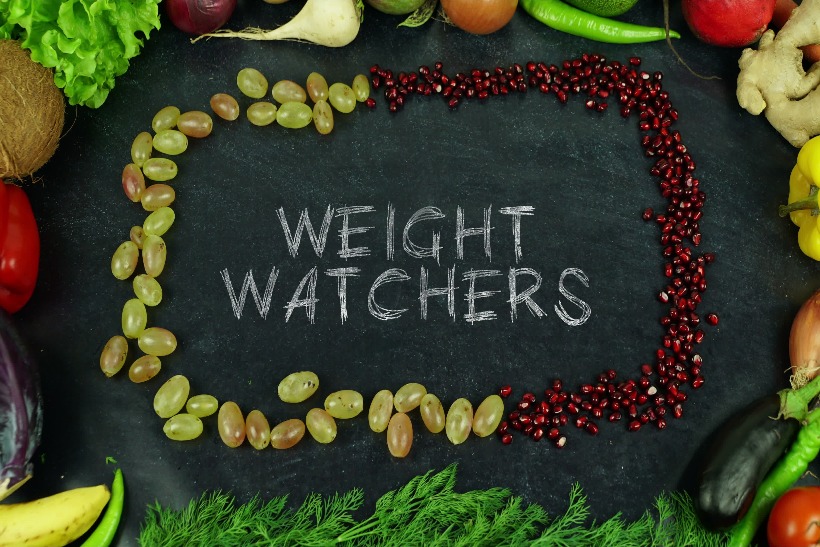When it comes to dieting, weight loss isn't the only benefit. Many diet programs not only help you shed pounds but also contribute to better overall health. However, finding the right diet for your unique needs can be a challenge.
While diets are commonly associated with weight loss, they can also help improve eating habits, boost your health, and promote an active lifestyle. The key is finding a sustainable plan that suits your personal needs.
With so many options out there, choosing the right diet can feel overwhelming. Some diets focus on curbing your appetite, while others emphasize restricting certain food groups or calorie intake. Still, others prioritize broader lifestyle changes over strict food restrictions.
Regardless of their approach, many of these diets offer health benefits that extend beyond just weight loss. Here are the six best diet plans to help you not only lose weight but also improve your overall health:
1. The Mediterranean Diet
For decades, the Mediterranean diet has been revered as the gold standard for nutrition, disease prevention, and longevity. Its success lies in its balance, sustainability, and focus on wholesome, minimally processed foods.
How it Works
This diet is based on the traditional eating habits of people in Mediterranean countries like Italy and Greece. It emphasizes:
- Vegetables, fruits, and whole grains
- Fish, nuts, lentils, and olive oil
Moderation is key, with poultry, eggs, and dairy products consumed occasionally, and red meat limited. The diet also limits:
- Refined grains
- Trans fats and processed meats
- Added sugars and highly processed foods
Health Benefits
The Mediterranean diet is linked to lower risks of chronic diseases such as heart disease, stroke, and certain cancers. Its focus on antioxidant-rich foods helps reduce inflammation and oxidative stress, both major contributors to chronic illness.
In terms of weight loss, research suggests the Mediterranean diet can be just as effective as low-fat or low-carb diets. A systematic review of five studies found that people following the Mediterranean diet experienced greater weight loss over a year compared to those on low-fat diets.
Additionally, studies highlight its potential to promote mental health by reducing the risk of cognitive decline and depression.
Downsides
Because it de-emphasizes dairy, some individuals may need to pay extra attention to calcium and vitamin D intake.
Summary
The Mediterranean diet promotes a plant-heavy, minimally processed approach to eating that supports both weight loss and long-term health.
2. The DASH Diet
Designed to combat high blood pressure (hypertension), the Dietary Approaches to Stop Hypertension (DASH) diet is low in sodium and emphasizes fruits, vegetables, and lean proteins.
How it Works
The DASH diet provides specific daily servings based on your calorie needs. For example, it typically recommends:
- 5 servings of vegetables and fruit
- 7 servings of whole grains
- 2 servings of low-fat dairy
- Lean meats in moderation
Nuts, seeds, and legumes are also encouraged 2-3 times per week.
Health Benefits
Beyond lowering blood pressure, the DASH diet has been associated with a lower risk of heart disease, type 2 diabetes, and certain cancers. It’s also effective for weight loss, with studies showing those on the DASH diet lost more weight over 8-24 weeks compared to control diets.
Downsides
Though effective, it’s not for everyone—particularly those without hypertension. Research on low sodium diets suggests they may increase insulin resistance in some individuals.
Summary
The DASH diet supports heart health and weight loss, but its low sodium approach is best suited for those with hypertension.
3. Plant-Based and Flexitarian Diets
Vegetarian and vegan diets are increasingly popular for their health benefits and ethical appeal. The flexitarian diet, a more relaxed version, allows occasional consumption of animal products.
How it Works
Plant-based diets primarily focus on:
- Fruits, vegetables, legumes, and whole grains
- Limiting or eliminating animal products
Flexitarian diets encourage plant proteins but allow meat in moderation.
Health Benefits
Numerous studies link plant-based diets to lower risks of heart disease, type 2 diabetes, and certain cancers. The flexibility of the flexitarian diet makes it easier to maintain while still offering similar health benefits.
Downsides
For those accustomed to a meat-heavy diet, transitioning can be tough, and it’s important to ensure adequate nutrient intake, such as vitamin B12 and iron.
Summary
Plant-based diets promote overall health, but some may find them too restrictive. The flexitarian diet offers a more adaptable approach.
4. The MIND Diet
A blend of the Mediterranean and DASH diets, the MIND diet was developed to enhance brain health and reduce the risk of neurodegenerative diseases.
How it Works
The MIND diet focuses on 10 brain-healthy food groups, such as:
- Leafy greens, berries, nuts, whole grains
- Fish, poultry, beans, and olive oil
Health Benefits
Research suggests the MIND diet can reduce the risk of Alzheimer’s and Parkinson’s diseases. Although not primarily a weight loss diet, the MIND diet shares many principles with diets that support weight management.
Downsides
Research on its weight loss effects is limited.
Summary
While focused on cognitive health, the MIND diet may also support overall wellness and weight maintenance.
5. WW (Weight Watchers)
WW is a points-based system where foods are assigned values based on their calorie, fat, and fiber content.
How it Works
You’re given a daily points limit tailored to your weight loss goals, and you track your food accordingly. Flexibility is a hallmark of the WW plan, allowing for a wide range of food choices.
Health Benefits
WW has been shown to promote weight loss, and those who follow it tend to maintain their results long-term.
Downsides
The program can be costly, and its flexibility can lead to poor food choices if not carefully managed.
Summary
WW offers a flexible, evidence-based approach to weight loss, but the cost may be prohibitive for some.
6. Intermittent Fasting
This method involves cycling between periods of eating and fasting, such as the 16/8 or 5:2 approaches.
How it Works
Intermittent fasting reduces your eating window, making it easier to lower calorie intake and potentially lose weight.
Health Benefits
Intermittent fasting has been associated with anti-aging benefits, improved brain health, and better metabolic outcomes. Studies show it can help you lose 0.8–13% of your body weight in as little as 2 weeks to 1 year.
Downsides
While generally safe, people with certain health conditions, such as diabetes or eating disorders, should avoid intermittent fasting without professional guidance.
Summary
Intermittent fasting offers a simple yet effective approach to weight loss and improved metabolic health, though it’s not for everyone.
Ultimately, the best diet is one that aligns with your lifestyle and long-term health goals. By focusing on whole foods and creating a sustainable eating pattern, you’ll be on your way to both losing weight and enhancing your overall well-being.




:max_bytes(150000):strip_icc()/Ekaterina-84-c3b7c27798e845b9870d7a93ecbf5234.jpg)

